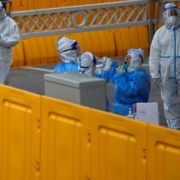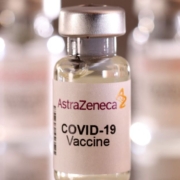The World Health Organization was due to hold an emergency meeting on May 20 to discuss the recent outbreak of monkeypox, a viral infection more common to west and central Africa, after more than 100 cases were confirmed or suspected in Europe.
A smattering of monkeypox cases in Britain prompted authorities to offer a smallpox vaccine to some healthcare workers and others who may have been exposed, as a handful more cases were confirmed in parts of Europe.
As previously reported by BioSpace, a group of scientists from the Babraham Institute in the United Kingdom was able to successfully rejuvenate skin cells by a full 30 years.
EVERSANA, a pioneer of next generation commercial services to the global life sciences industry, opened a new office in the heart of London’s Holborn district to serve the company’s growing client and team needs.
Scientists from the United Kingdom may have identified several more environmental causes for cancer after evaluating the genetic data of over 12,000 cancer patients from National Health Service files.
British employees of pharma giant GlaxoSmithKline voted to strike against the company’s recent pay raise. Hundreds of GSK workers backed by British labor union Unite demanded a higher raise, citing major inflation rates and the company’s recent financial successes.
Worldwide demand for Pfizer Inc.’s oral COVID-19 antiviral treatment Paxlovid has been unexpectedly light due to complicated eligibility requirements, reduced testing and potential for drug interactions, a Reuters review of data and interviews with experts found.
Explainer: Omicron ‘stealth’ COVID variant BA.2 now dominant globally
Asia, China, Coronavirus Disease 2019 (COVID-19) Reinfections, COVID-19 transmission, COVID-19 Vaccinations, Europe, Germany, Omicron (B.1.1.529) (South Africa), Omicron BA.2, Public Health Crisis, R&D, Scientists, United Kingdom, United StatesA sub-variant of the highly transmissible Omicron version of coronavirus known as BA.2 is now dominant worldwide, prompting surges in many countries in Europe and Asia and raising concern over the potential for a new wave in the United States.
COVID-19 Update: Omicron BA.2 Surges, Long COVID and Mental Health
BioNTech, BNT162b2 (Pfizer and BioNTech), Business, China, CNBC, Coronavirus Cases, Coronavirus Vaccines, COVID-19 booster shots, COVID-19 shots, Depression, France, Germany, Italy, Janssen COVID-19 Vaccine (J&J), Johnson & Johnson, Long COVID, Moderna, mRNA-1273/Moderna COVID-19 Vaccine (Moderna), National Health Commission (China), Omicron (B.1.1.529) (South Africa), Omicron BA.2, Pfizer, R&D, Stocks, Switzerland, The Netherlands, United KingdomMany countries around the world that appeared to have kicked COVID-19 are reporting surges, largely the result of the so-called “stealth” Omicron variant, BA.2.
A large study into rare blood clots linked with AstraZeneca’s COVID-19 vaccine found between just one and three cases per million, and only after the first dose, shedding fresh light on the side effects from the shot.







 Reuters
Reuters

